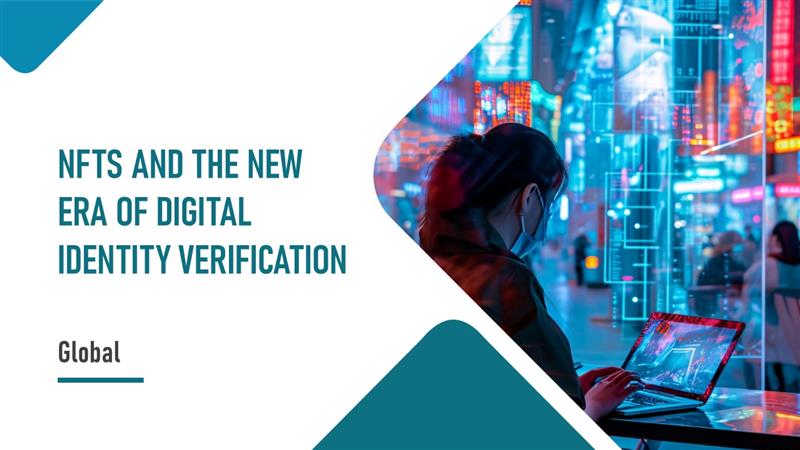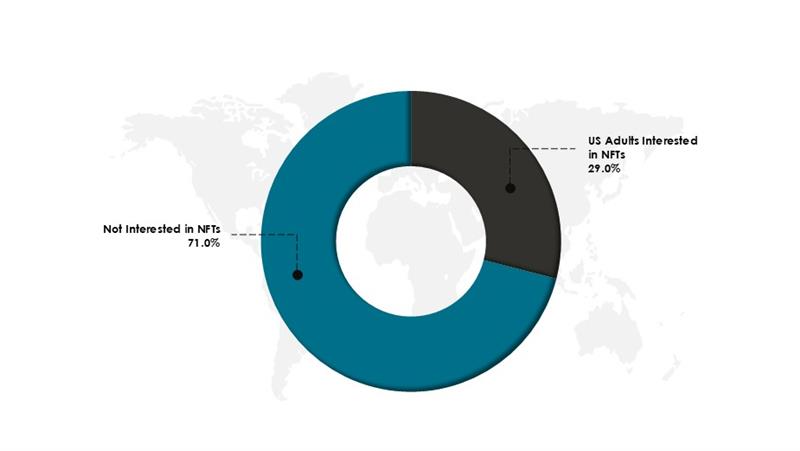
NFTs and the New Era of Digital Identity Verification
In the realm of Web3, where decentralization and personal ownership are key, a new trend, i.e., NFTs as digital identities, is emerging that has the potential to change identity and authentication.
NFTs as digital identities are used to reflect a person’s credentials, history, or authorization in digital form. Each NFT is a credential that anyone can confirm but is controlled solely by you, the owner. A digital identity is a virtual depiction of an individual or entity’s features, behaviors, and attributes in the online environment. It includes personal data, user activity, and interactions in digital ecosystems.
One of the primary characteristics of NFTs is their capacity to demonstrate authenticity and scarcity. Each NFT is tracked on the blockchain, establishing a verifiable record of its ownership and ensuring the item’s uniqueness. This transparency is critical for digital identity because it enables individuals to build and preserve the legitimacy of their digital assets.
Advantages of NFT-Based Digital Identities
User Sovereignty: NFT identities give users control over credentials, achievements, and access, reducing reliance on central institutions. They manage identities directly from digital wallets.
Increased Privacy: NFT-based identities enable anonymity, unlike standard digital IDs that store personal data centrally. They include only necessary information, avoiding sensitive data disclosure.
Interoperability: NFTs are cross-compatible across blockchains, enabling a single identity to access multiple decentralized services, enhancing user experience beyond traditional ID systems.
Efficiency in Verification: NFTs are cross-compatible across blockchains, enabling a single identity to access multiple decentralized services, enhancing user experience beyond traditional ID systems.
Role of NFTs in Decentralized Authentication
Access Control in Virtual Worlds – In metaverse environments, NFTs are gatekeepers, allowing holders access to specific digital locations, events, or unique material. For example, holding a specific NFT may entitle players to access a virtual VIP lounge or a restricted event in a gaming universe.
Reputation Systems in DeFi and DAOs – NFTs are used in decentralized finance (DeFi) and decentralized autonomous organizations (DAOs) to express governance rights, allocate responsibilities, and reward contributions. This makes it possible for a transparent reputation system in which NFTs are used to reflect the accomplishments and contributions of people.
Decentralized Credentialing – NFTs are used to certify academic achievements, course completions, and even employment history. Projects in the Web3 education arena are issuing NFT diplomas, making it simple for users to carry and validate their qualifications electronically.
User-Based Statistics of NFT Markets
A survey revealed that 20% of U.S. adults are “somewhat interested” in acquiring, investing in, or trading NFTs, while 9% expressed being “very interested” in engaging with them.

A 2023 survey found that Millennials are the most likely generation to collect NFTs, with 23% of respondents stating they do so either as a hobby or an investment.
According to NFT Statistics, individuals earning between $25,000 and $150,000 show significantly less interest in NFTs, with 94% stating they are not interested at all.
Present Trends of NFT-Based Digital Identities
Metaverse Integration – The metaverse, a shared virtual space for user interaction, is deeply connected to NFTs and digital identity. NFT-based identities will be key in enabling smooth transitions between virtual and real-world personas.
Identity Standards – Standardizing NFT-based digital identity protocols is crucial for cross-platform interoperability. Groups such as the Decentralized Identity Foundation (DIF) are developing these standards to drive adoption.
Privacy-Centric Solutions – Privacy is a key concern in digital identity, driving the rise of NFT-based solutions that let users control what information they share and with whom.
Cross-Platform Compatibility – For NFT-based digital identities to reach their full potential, they must integrate with various applications, services, and ecosystems. Developers are creating solutions for seamless cross-platform functionality.
Identity NFT Marketplaces – New marketplaces are emerging for trading, buying, and selling identity NFTs, offering a platform for managing digital identities and accessing related services. Some popular NFT marketplaces include OpenSea, Rarible, Mintable; SuperRare, etc.
NFT-based digital identity case studies

Construction Asset Management: NFTs have been utilized to establish digital identities for residential buildings. NFTs can be used to encapsulate a residential structure’s design, construction, and operational data. This innovation enabled the seamless transfer of asset ownership and associated information between stakeholders.

Virtual Event Access: Virtual event organizers leveraged NFTs as digital tickets, providing attendees secure and personalized access to specific sessions or content. Each NFT acts as a unique credential, streamlining authentication and ensuring a seamless entry process.

Fashion and Branding: Brands have launched NFT-based collections as digital art and proof of authenticity for physical items. Mmerch introduced hoodies linked to NFTs and digital art, integrating generative AI, NFTs, and on-demand manufacturing.
Stay tuned to Innovius Research for ongoing market insights and data-driven analysis.
Data Sources: Solulab, Supplain, Demandsage, and others
Read more Market Reports.
Other Market Insights

